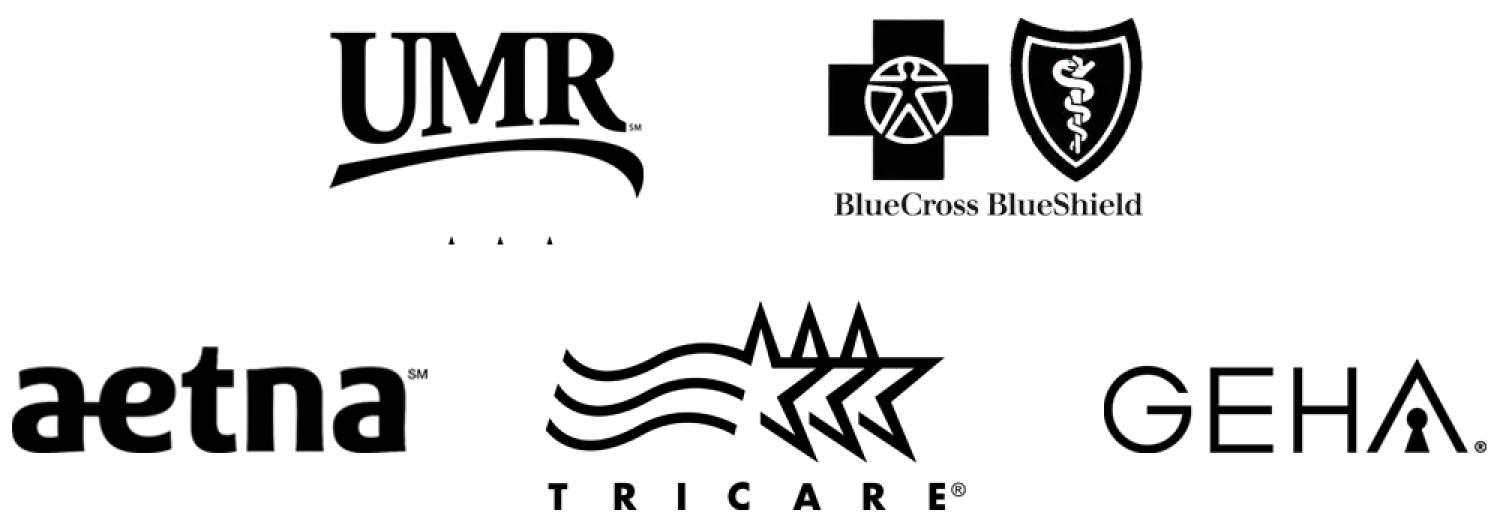Cornerstone
Understanding TriCare Drug Treatment Coverage
Learn about using your TriCare insurance policy to cover substance abuse treatment
Alcohol and Drug Treatment Coverage with TriCare
When you’re struggling with alcohol or drug addiction, the last thing you want to worry about is whether your insurance will cover the treatment you need.
TriCare, the health care program for active duty service members, their families, National Guard and Reserve members, retirees, survivors, and certain former spouses, offers coverage for substance abuse treatment to help you get back on track.
In this guide, we’ll examine TriCare’s drug treatment coverage, including in-network and out-of-network options, the claims approval process, plan types, deductibles, and navigating financial hardships so you can focus on your recovery.
By understanding your coverage, you’ll be better prepared to focus on recovery and lead a healthier, drug-free life.
Jump to the following sections
View our addiction treatment locations
Addictions we treat at Cornerstone
TriCare drug treatment coverage
In-Network
Out-of-Network
When seeking drug treatment with TriCare, it’s best to choose an in-network provider to save on out-of-pocket costs and for easier claims processing, thanks to TriCare’s negotiated rates.1
Some plans, such as TriCare Reserve Select, TriCare Young Adult, and TriCare Prime Remote, allow out-of-network care at higher costs. Other plans require in-network providers to ensure the lowest possible expenses.2
While in-network options provide the best value, they may have fewer facilities and potential waiting lists.
Opting for an out-of-network treatment center with TriCare offers more freedom in choosing a facility but comes with higher out-of-pocket costs and more complex claims approval. You might need to pay upfront and seek reimbursement later, which can take weeks. Costs can range from hundreds for outpatient treatment to thousands for inpatient care.
In contrast, using in-network providers means lower costs, as TriCare covers the negotiated rates, leaving you with the remaining expenses. Speak with a TriCare representative to understand your coverage and options for the best value.
Consider your financial situation and priorities when deciding between in-network and out-of-network care.
Information about TriCare Plan Types
TRICARE Prime (Health Maintenance Organization - HMO)
TRICARE Prime is a mandatory plan for active-duty members of the military. It covers active duty and retired military members and their families, as well as activated members of the National Guard and their families.
TRICARE Prime offers coverage for most forms of substance misuse treatment, including inpatient and outpatient treatment and detox.3
Like an HMO, you must choose a primary care physician to coordinate your care and provide specialist referrals. You’ll have lower out-of-pocket costs but less flexibility in choosing providers.
TRICARE Select (Preferred Provider Organization - PPO)
TRICARE Select is another option for active duty and retired military members and their families.4
While members have additional choices in the providers they see, there are higher costs.
This coverage is very similar to TRICARE Prime, but certain services must be approved before they’re authorized.
Like a PPO, TRICARE Select gives you more freedom to see out-of-network providers, but you’ll pay more for those services.
You won’t need referrals to see specialists.
TRICARE Standard Overseas (Exclusive Provider Organization - EPO)
TRICARE Standard Overseas is a plan offered to active-duty and retired military members and families that allows a choice of providers but has higher costs.
As with the TRICARE Standard, authorization is required for many services.
Like an EPO, you’ll need to stay within the plan’s network, but you won’t need to choose a primary care physician or get referrals.
TRICARE Reserve Select (Point of Service - POS)
TRICARE Reserve Select coverage is for reserve members who are not on active duty. It resembles a typical insurance plan with a deductible, monthly payments, and a provider network.
Members can choose to go to a non-network provider for treatment but will pay a higher deductible and copay.
This is comparable to a POS plan, which blends elements of HMOs and PPOs. You’ll have a primary care physician but can see out-of-network providers at a higher cost.
TRICARE Retired Reserve (High Deductible Health Plan - HDHP)
TRICARE Retired Reserve offers coverage for eligible retired reserve service members under 60 and some surviving spouses of eligible retired reserve members.
As with Reserve Select, members of this plan have monthly premiums, deductibles, and copays but can use non-network providers at a higher cost.
This plan is similar to an HDHP, which has lower premiums but higher deductibles. They’re often paired with a health savings account (HSA) to help you save for medical expenses.
TRICARE for Life & TRICARE Young Adult (Medicaid & Medicare Plans)
TRICARE for Life is a program for people who receive Medicare Part A and B. It is a form of health insurance that covers many expenses that Medicare does not.
TRICARE Young Adult offers coverage for those needing healthcare after their “regular” TRICARE coverage ends after age 21 (23 if in college).
You must also be under 26, unmarried, and the child of an eligible TRICARE member. These plans work alongside Medicaid and Medicare to provide comprehensive coverage.
Understanding Policy Terminology
Deductible
Co-Insurance
Out-of-Pocket Max
The deductible is the amount you pay out of pocket for covered healthcare services before your insurance plan starts to pay.
For example, if your plan has a $1,000 deductible, you must pay the first $1,000 of covered services yourself.
After you have paid your deductible, your insurance will begin to pay its share of the costs.
Deductibles can vary depending on your specific TriCare plan and whether you choose an in-network or out-of-network provider.4
Co-insurance is the percentage of the cost of a covered healthcare service after you’ve met your deductible.
For instance, if your plan has a 20% co-insurance and you’ve already paid your deductible, you will pay 20% of the cost of a covered service while your insurance pays the remaining 80%.
Like deductibles, co-insurance can vary based on your TriCare plan and your choice of healthcare provider.
The out-of-pocket max is the maximum amount you will pay for covered healthcare services in a year, including your deductibles, co-payments, and co-insurance.
Once you have reached this limit, your insurance will cover 100% of the costs for the remainder of the year.
This provides a safety net, ensuring you don’t face unlimited medical expenses.
The out-of-pocket max can differ based on your TriCare plan, so reviewing your policy carefully is essential.
TriCare Approval Process for Treatment
Verification
Submission
Adjudication
Payment
Appeal
The first step in the approval process is verification. The treatment center will verify your TriCare coverage and determine what your specific plan covers. They will contact TriCare to confirm your eligibility and get details on your benefits, including any deductibles, co-payments, or co-insurance amounts. The treatment center will then let you know if you’ll need to pay anything out of pocket for your treatment. It’s important to provide accurate information to the treatment center so they can verify your coverage correctly.
Once your coverage has been verified, the next step is submission. The treatment center will submit a claim to TriCare on your behalf. This claim will include detailed information about the services you received, such as the dates of treatment, the types of therapy or medication provided, and the associated costs. The treatment center will use specific codes to ensure that TriCare understands exactly what services were rendered during submission.
After receiving the submitted claim, TriCare will begin the adjudication process. TriCare will review the claim during adjudication to determine whether the services are covered under your specific plan. They will check if the treatment was medically necessary, if an approved provider provided it, and if it falls within your plan’s coverage limits. The adjudication process can take some time, depending on the complexity of the claim and the volume of claims TriCare is processing.
If your claim is approved during adjudication, the next step is payment. TriCare will pay its portion of the costs directly to the treatment center. You will then be responsible for paying any remaining costs, such as your deductible, co-payments, or co-insurance. The treatment center will bill you for these amounts and may offer payment plans or financial assistance if needed. It’s crucial to understand your financial responsibilities before beginning treatment.
If your claim is denied, don’t panic. The appeal process is there to help. Denials can occur due to incomplete information, coding errors, or non-covered services. Your treatment center’s billing department is experienced in handling appeals and will likely file one for you, correcting errors and providing necessary information. They work hard to ensure services are approved and will advocate for you if a denial occurs, allowing you to focus on recovery while they manage the insurance issues.
Get Help Paying Your Deductible
File a Hardship With TriCare
If paying your deductible would cause significant financial strain, you may be able to file a hardship request with TriCare. A hardship is a situation that causes significant financial difficulty, such as a loss of income, unexpected medical expenses, or a natural disaster. To file a hardship, you must contact TriCare directly and provide documentation of your financial situation. If your hardship request is approved, TriCare may waive or reduce your deductible, making it easier to afford the necessary treatment.
Assistance Programs & Payment Plans
Community Resources & Charitable Organizations
Community resources and charitable organizations, such as local faith-based groups, community foundations, and national non-profits focused on addiction recovery, may be able to help cover your deductible for drug treatment. These organizations understand the importance of timely care. Your treatment center or local health department may have information on these resources, but remember that they may have limited funds and eligibility requirements. Don’t let financial concerns stop you from seeking the drug treatment you need.
FAQs About Using TriCare Benefits
to Pay for Alcohol and Drug Treatment
Will TriCare cover my entire stay in drug rehab?
TriCare is committed to providing comprehensive healthcare assistance, including coverage for medically necessary substance use treatment.
If a healthcare professional determines that your rehabilitation stay is essential for your health and recovery, TriCare typically covers the associated treatment expenses, depending on the specifics of your policy.
However, to fully understand your benefits, you should review your TriCare policy or speak with a Cornerstone admissions representative for detailed coverage information.
We can verify your insurance coverage, check your benefits, and ensure you receive the necessary treatment.
What types of treatment does TriCare cover?
TriCare offers a broad spectrum of coverage to assist individuals confronting substance use disorders, emphasizing both immediate medical intervention and holistic, long-term recovery.5
Below is an overview of services TriCare supports:
- Inpatient Services (Including Emergency): TriCare provides coverage for both emergency interventions and planned inpatient care, ensuring timely access to necessary treatments without delay.
- Intensive Outpatient Programs (IOPs): TriCare supports intensive outpatient programs for individuals requiring regular oversight without constant inpatient care. These programs typically feature group therapy, individual counseling, and structured recovery activities.4
- Detoxification: Recognizing the difficulty of managing withdrawal symptoms, TriCare covers detoxification services, which are crucial for the safe mitigation of withdrawal under professional supervision.
- Mental Health Services: Acknowledging the frequent overlap between addiction and mental health issues, TriCare extends coverage to a variety of mental health services, including cognitive-behavioral therapy (CBT), psychotherapy, and counseling, to tackle underlying mental health challenges.
- Opioid Treatment Programs: For severe opioid dependency, TriCare includes comprehensive treatment programs that combine medication-assisted treatment, counseling, and ongoing recovery planning.
- Partial Hospitalization Programs (PHPs): PHPs balance intensive inpatient care and outpatient services covered by TriCare, facilitating substantial care without overnight stays.
- Residential Treatment for Substance Use Disorders: TriCare also covers residential treatment programs for individuals needing immersive, 24/7 care. These programs offer medical oversight, therapy, and peer support in a residential setting.
TriCare’s wide-ranging coverage ensures that military members and their families have access to varied treatment pathways, catering to diverse needs for achieving sustainable recovery from substance abuse.
Are there any restrictions on types of addiction treatment TriCare will pay for?
Like other insurance providers, TriCare sets certain restrictions or limitations on the addiction treatments it covers, considering factors like medical necessity, evidence-based effectiveness, cost efficiency, and the details of your specific insurance plan.
Common restrictions may include:
- Type of Treatment: Coverage may be restricted to certain types of treatment, such as inpatient, outpatient, or Medication-Assisted Therapy (MAT). In contrast, more luxurious or experimental treatments might not be covered.
- Provider Network: TriCare has a network of approved addiction treatment providers. Getting care outside this network could lead to higher out-of-pocket costs or lack of coverage.
- Pre-Authorization Requirement: Many TriCare plans require pre-authorization for addiction treatment services, meaning approval is needed in advance to ensure coverage.
- Duration and Frequency of Treatment: Limits may be placed on how long and how often treatments can be received, for example, a maximum number of days for inpatient care or a limited number of therapy sessions.
- Substance-Specific Coverage: The coverage might differ based on the substance being treated, with certain substances or behaviors possibly facing exclusions or limitations.
- Evidence-Based Treatments: TriCare generally covers treatments proven effective through scientific research.
- Appropriate Level of Care: Coverage is provided only for the level of care deemed necessary for the patient’s specific condition, which could restrict access to more intensive treatment options unless there is a medical justification.
There are many factors to consider when determining your coverage.
Contact our admissions team for personalized guidance based on your unique situation.
Does TriCare cover therapy?
Yes, TriCare provides coverage for a wide range of psychotherapy services for its members.
This includes individual therapy sessions, counseling appointments, marriage and family counseling, and various forms of group therapy designed to address different mental health conditions.
In addition to these standard therapy options, TriCare may also cover psychological testing and assessments that help diagnose patients with specific mental health disorders.
Some plans may even cover experiential therapies, such as art therapy and music therapy, though this can vary depending on the specific plan and provider.
You must check with your TriCare representative to understand the particular therapy benefits included in your plan.
How soon can I get into rehab with TriCare coverage?
We have made the admission process as simple and convenient as possible.
Once we verify your TriCare insurance, we can proceed with treatment planning and admission without delays.
So you can start your journey toward recovery as soon as possible!
Sources
CLINICALLY REVIEWED

Lionel Estrada, LISAC
CLINICAL DIRECTOR
Lionel, our Clinical Director is a Licensed Independent Substance Abuse Counselor (LISAC) with over 4 years at Cornerstone, specializes in addiction and mental health. Trained in EMDR therapy, he employs a trauma-informed, empathetic approach to address the underlying causes of these issues.
- Read our Editorial Policy
Still have questions about treatment?
Our admissions specialists are here to explain the process, answer any questions you may have, and ensure you’re getting the help you need to live a healthy life free from addiction.























